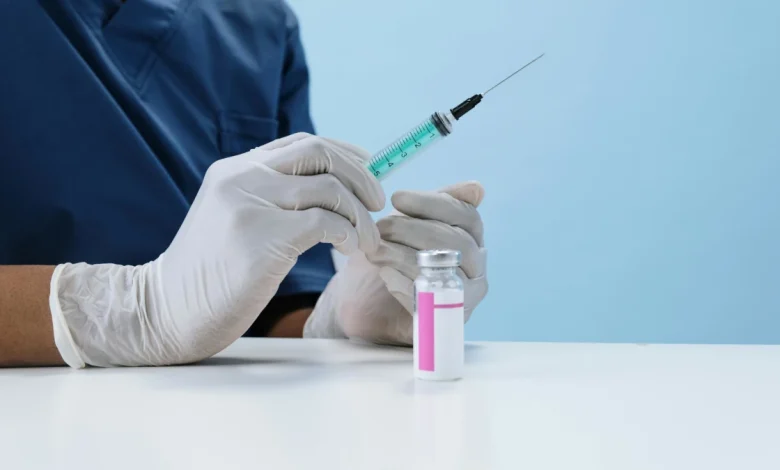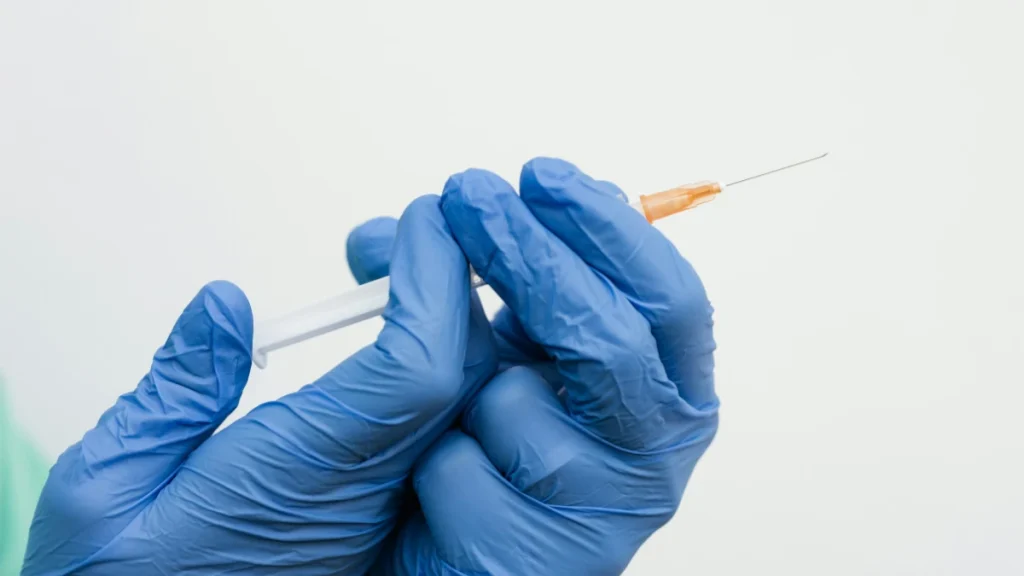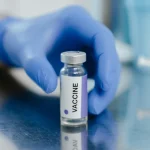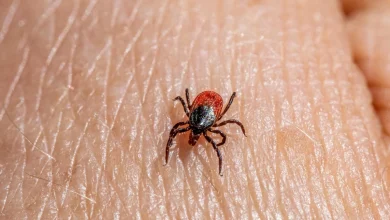Everything You Need to Know About the Typhoid Vaccine: Protection, Types, and Side Effects
Complete guide to Typhoid Vaccine protection, types, and side effects.

Typhoid fever remains a serious health threat, especially in areas with limited access to clean water and proper sanitation. It spreads through contaminated food and water, making it easy to contract if preventive measures are ignored. Thankfully, the typhoid vaccine offers strong protection against this dangerous infection.
In this guide, you’ll learn everything about the typhoid vaccine—how it works, the types available, the best time to take it, and the possible side effects. Whether you’re traveling to a high-risk area or just want to stay protected, this article will give you all the insights you need to make an informed decision.
What Is Typhoid Fever?
Typhoid fever is a bacterial infection caused by Salmonella Typhi. It affects the intestinal tract and bloodstream, leading to symptoms like high fever, weakness, stomach pain, and loss of appetite. If left untreated, it can cause severe complications and even death.
The infection spreads mainly through contaminated food or water. Poor hygiene, lack of clean water, and close contact with infected individuals increase the risk. That’s why vaccination and good hygiene are crucial in preventing typhoid fever.
How Does the Typhoid Vaccine Work?
The typhoid vaccine stimulates your immune system to produce antibodies that recognize and fight the Salmonella Typhi bacteria. Once vaccinated, your body becomes better prepared to defend itself if exposed to the bacteria.
Also Read: Everything You Need to Know About Tylenol: Benefits, Risks, and Safe Use
There are two main types of typhoid vaccines:
- Inactivated (killed) vaccine: Given as an injection.
- Live attenuated (weakened) vaccine: Taken orally in capsule form.
Each type has specific dosage schedules and protection durations, which we’ll explore next.
Types of Typhoid Vaccines

1. Typhoid Polysaccharide Vaccine (Inactivated – Injectable)
This vaccine is given as a single injection in the arm. It’s recommended for people aged two years and older. Protection usually lasts for about two years, after which a booster shot may be needed.
It’s ideal for travelers, health workers, and anyone living in areas with frequent typhoid outbreaks.
2. Ty21a (Live Oral Vaccine)
This type is available as capsules taken by mouth. It’s suitable for people above six years of age. You usually take one capsule every other day for a total of four doses.
The oral vaccine provides protection for about five years. It’s a good choice for those who prefer not to get injections.
Who Should Get the Typhoid Vaccine?
The typhoid vaccine is recommended for:
- Travelers going to countries where typhoid fever is common.
- People who live in or near areas with poor sanitation.
- Laboratory workers who handle Salmonella Typhi samples.
- Individuals in close contact with someone infected with typhoid.
Even if you’re not in a high-risk group, vaccination is a wise step if you plan to travel internationally, especially to Asia, Africa, or Latin America.
When Should You Get Vaccinated?
Timing matters when it comes to typhoid vaccination. For maximum protection:
- Injection vaccine: Get vaccinated at least two weeks before potential exposure.
- Oral vaccine: Complete all four doses one week before traveling.
This ensures your body develops enough antibodies to fight the bacteria effectively.
Also Read: Brain Tumors: Causes, Symptoms, and Treatment Options in the US and Europe
Typhoid Vaccine Side Effects
Like most vaccines, the typhoid vaccine may cause mild and temporary side effects. These usually go away within a few days. Common side effects include:
- Redness or swelling at the injection site
- Mild fever
- Headache
- Fatigue
- Stomach discomfort (more common with the oral vaccine)
Severe allergic reactions are rare but possible. If you experience difficulty breathing, dizziness, or severe swelling after vaccination, seek medical help immediately.
How Long Does Typhoid Vaccine Protection Last?
The duration of protection depends on the vaccine type:
- Injection vaccine: Around 2 years.
- Oral vaccine: Around 5 years.
After that, a booster dose is recommended to maintain protection. Keeping your vaccination record updated is essential, especially if you travel often.
Can You Get Typhoid After Vaccination?
While the vaccine offers strong protection, it’s not 100% effective. You can still get typhoid if exposed to high levels of bacteria. However, the illness will likely be milder and shorter.
That’s why you should continue practicing safe habits, such as drinking clean water, eating properly cooked food, and washing hands regularly.
Important Tips for Typhoid Prevention
In addition to vaccination, follow these steps to lower your risk of infection:
- Drink bottled or boiled water only.
- Avoid raw fruits and vegetables unless you peel them yourself.
- Eat freshly cooked food served hot.
- Wash hands frequently with soap and clean water.
- Avoid street food in areas with poor sanitation.
These preventive measures, combined with vaccination, provide the best defense against typhoid fever.
Typhoid Vaccine for Children
Children above two years old can safely receive the injectable typhoid vaccine. The oral vaccine, however, is only recommended for children aged six and above. Always consult your pediatrician before vaccinating your child.
Vaccination helps protect kids, especially those in school environments or traveling to areas with frequent typhoid cases.
Cost and Availability of the Typhoid Vaccine
The cost of the typhoid vaccine varies by country and healthcare provider. In most clinics, the injectable vaccine is affordable and widely available. Travel clinics and government health centers often provide it at a reduced cost or even free for high-risk groups.
Before traveling, check with your doctor or local health department for availability and the recommended schedule.
Final Thoughts
The typhoid vaccine is one of the most effective ways to prevent a potentially life-threatening disease. Whether you’re traveling abroad or living in an area where typhoid is common, getting vaccinated is a smart and safe choice.
Remember, no vaccine works alone—combine it with good hygiene, clean water, and safe food habits. Staying informed and proactive is the key to maintaining your health and protecting those around you.
Frequently Asked Questions
For the injectable type, only one dose is needed, while the oral vaccine requires four capsules taken over a week.
Pregnant women should consult a doctor before taking the vaccine. The inactivated injectable type is generally considered safer.
A booster is recommended every two years for the injection type and every five years for the oral type.
Yes. Children over two years can take the injection type, and those over six years can take the oral type.
You can continue normal activities, but avoid heavy exercise immediately after the shot. Stay hydrated and rest if you experience mild side effects.








